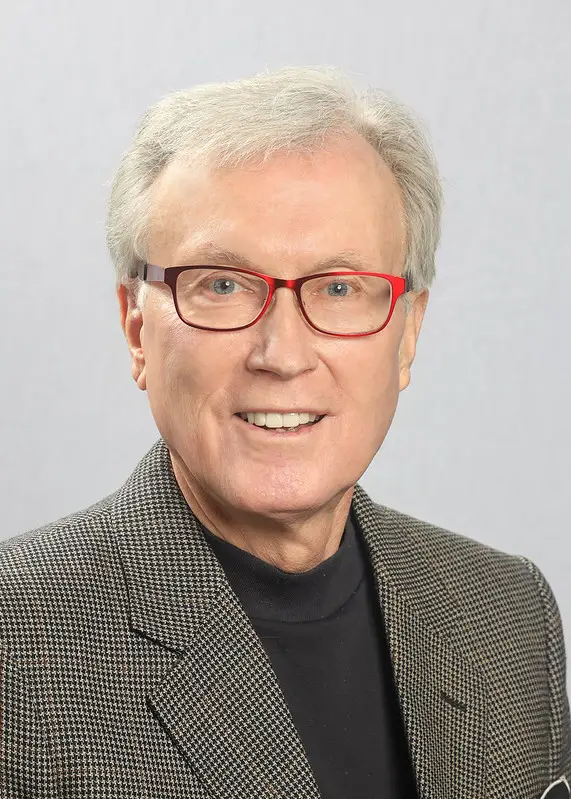The raging debate in popular culture is focused on so-called same-sex marriage. The U.S. Supreme Court is hearing cases concerning the issue. The talking heads of the news media are enamored with the topic. Television commercials, even on the more conservative Fox News Channel, are now openly advocating a complete acceptance of same-sex marriage.
For many of us, this is most troubling. There was a time when such discussions were not even considered proper for small group or more private conversations. Now it is an open discussion with highly-charged opinions on various sides.
Evangelical Christians, who hold fast to a traditional view of marriage, are often depicted as dinosaurs representing a long past epoch in history. This caricature leads to a sometimes venomous response from Christians. This makes for some unhealthy debate.
My response to all this chatter is multi-faceted. I really would like to cover my ears and pretend it is not happening. I would rather not hear such discussion or engage in it. The other response is to be distraught and disturbed by the debate to the point of anger and hostility.
Obviously, neither response is a good one. We cannot pretend that this change in cultural perception and interpretation is taking place at a rapid speed. To become angry and hostile is to fall into the trap of fulfilling the mischaracterization of the opposition who see evangelical Christians as dinosaurs roaming around the landscape, reminiscing about days long past.
What is our best response? As always, we are at our best when we look to the example of Christ and seek to be Christlike, even when our own instinct is to withdraw from public debate or to become angry participants in it.
We are called to be disciples of Jesus, which means He is our Teacher and our Guide in living the Christian life. The old adage, “What would Jesus do?”, is an excellent introspective question for us. What would Jesus do?
I. What would Jesus do? I believe He would call sin, sin!
Jesus would not be a part of compromising the biblical nature of our understanding of marriage. He would hold high the standard we now call traditional marriage. In the language of the Apostle Paul, we are all sinners. We all have come short of the glory of God.
In our current society, the issue is self-esteem, not righteous living. Supposedly, when a newspaper reporter asked G. K. Chesterton what was wrong with the world, the apologist skipped over all the likely culprits of his day and ours. He did not talk about crooked politicians or nations seeking advantages through war. He did not discuss the failure of education or the structural evils of his time.
What is wrong with the world? As the story goes, he surprised the newspaper reporter with a two-word answer: “I am.” Chesterton understood our basic human nature is one of sin. As a writer recently noted in Christianity Today: What happened in Eden did not stay in Eden. This was the fall of all humankind.
When we understand that truism, we are certainly better able to respond to the continued encroachment of popular culture on biblical values. Left to our own devices, we will act out our sin. Extramarital affairs, pornography, homosexual behavior, greed and a multitude of other sins will abound. That is where the Bible comes in as our guide for Christian living. The Bible tells us about our sin, not just in proclamations but in illustrations from the past. The Old Testament is replete with these illustrations and proclamations, and the New Testament is not quiet about the subject either.
II. What would Jesus do? I believe He would love with God’s love.
Jesus did not love in the abstract. He loved people personally and sacrificially. This was His mode of operation in His earthly ministry, and it still is today.
He loves us all, even while we are in our sin. Sin is destructive, His love is constructive. Sin tears down lives, His love builds up lives. Sin separates us from God, His love brings us to God. Sin stains our lives, His loves cleanses our lives. We could go on and on describing the difference between sin and love. His love makes the ultimate eternal difference.
The woman caught in adultery and brought to Jesus is a relatively familiar passage. What I note from examining this account of our Lord’s ministry is that He did not condone the sin of the woman. He did not take sin lightly but seriously. Nor did He condemn her to be consigned to her sin. No, Jesus challenged her “to go and sin no more.”
The enemies of this woman were the enemies of Jesus too. He knew their motives were not pure. He knew that there was no one present who was without sin. That is why He declared, “He who is without sin, cast the first stone.” That should be a reminder to us today as well.
Disciples of Christ love others like Christ did. The opponents we face in any discussion are also loved by Christ. Yes, we take a stand for what is right, but we do so with the admonition of Paul ringing in our ears: “Speak the truth in love.” When we speak the truth alone, without love, we sound harsh and hostile. When we speak only in love, we come across as spineless and without conviction.
Jesus was described by the Apostle John as being “full of grace and truth.” This is exactly what Paul was referencing in his admonition to speak the truth in love. When we are full of our Lord’s grace and truth, we certainly stand on solid ground. To do otherwise is to do a tremendous disservice to our witness for the Lord.
III. What would Jesus do? I believe He would pray for all people involved.
Jesus loved the discipline of prayer. The so-called Lord’s Prayer is just one illustration of this fact. Our Lord’s High Priestly Prayer in John 17 is another. His practice of prayer in His earthly ministry reminds us of the importance of prayer.
The Apostle Paul captured the importance of prayer in I Timothy 2:1-7. He underscores the priority of prayer by citing it first: “Therefore, first of all supplications, prayers, intercessions and giving thanks should be done for all people.” Notice the word “first.” Before we debate, before we challenge others, before we offer our opinions, we are to first pray!
Consider the statement “for all people.” That means everyone, including those with whom we disagree. Those who represent the exact opposite of what we see as the Christian worldview should be the focus of our prayers. That is the biblical way. That is Christlike conduct, and that is the duty of all disciples.
We have two little boys who live next door to us. They are often at our house to play with “Miss Pam.” I don’t know who enjoys it more: the boys or the surrogate grandmother.
The other day the youngest one made a strange statement. He said, “If I don’t pray, will I shrink?” Apparently, something had been said in Sunday School about prayer helping us to grow and a lack of it causing us to shrink, not grow. The little fellow, like most children, took it literally. He was scared to death that he would shrink if he did not pray.
Perhaps, as adults, we ought to have a healthy fear of shrinking in our Christian witness and growth if we do not pray. Paul said, “Pray without ceasing.” Maybe he had this in mind when he declared that simple imperative. Pray and you grow. Cease to pray and you shrink.
The world may view us as dinosaurs no matter what we do. However, our audience is not the world, it is our Lord! As faithful disciples, we need to follow His sacrificial example. He paid the price for our sins on the cross, but His love goes beyond us. He wants others to come to know Him as Lord and Savior. How we live in the wayward world can make an eternal difference in the lives of those who have yet to experience the love of Christ and the gift of life through Him.
To Christ, we are His disciples. To the world, we may be dinosaurs. Yet, I believe His disciples will always be present and dinosaurs no longer remain. I will accept the moniker of dinosaur as depicted by the world, as long as I am seeking to be a faithful disciple of Christ in an unchristian culture.




